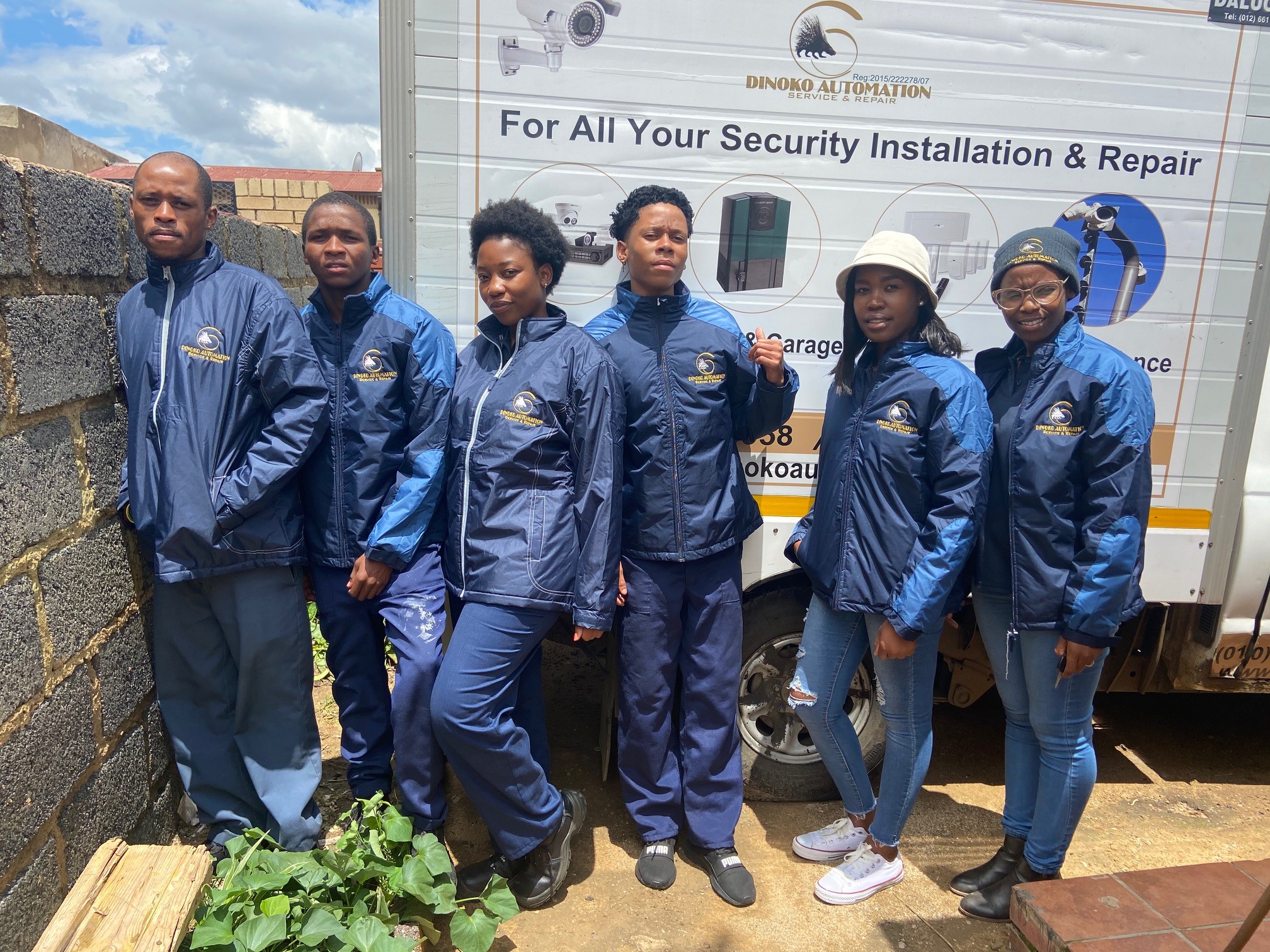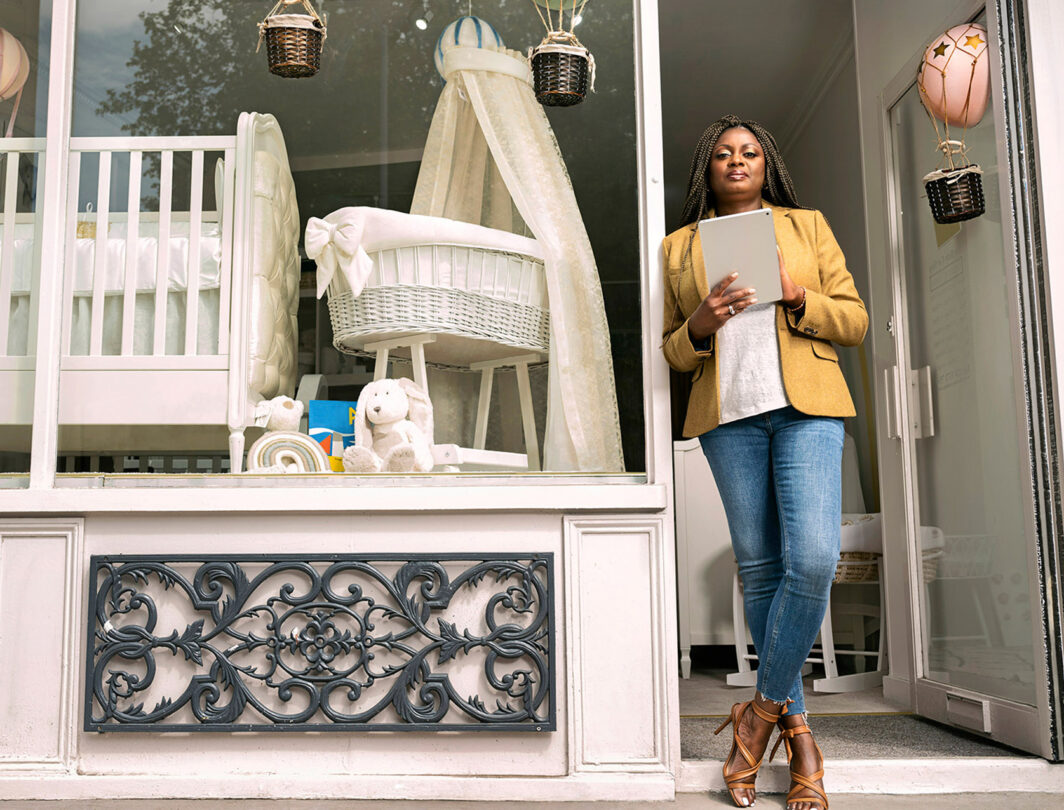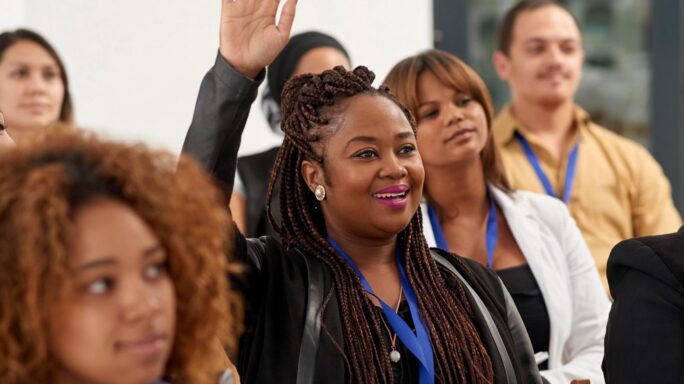Daily money
How one township entrepreneur turned R200 into R2.7 million

In 2014, Brian Malatji decided to start his own business. He quit his job at a manufacturing company that produces gate and garage automation motors, with the intention of using his skills to start his own township security business.
“I had everything planned out, including how I’d use my provident fund pay-out to fund my business idea,” says Brian.
But things didn’t go according to plan.
“I was involved in an accident a few months after leaving my job. I had to use the pay-out to repair my car, which was only six months old. I was left with R200 and I started to panic. I had a poor credit history and no capital. I tried to find another job, with no luck.”
Refusing to be poor, Brian used the little money he had to buy airtime. He called all his contacts to ask if they knew of anyone in the township who wanted their gate and garages automated and got a few leads.
“I set appointments with potential clients and asked for a deposit to purchase material and start with the installation.”
The rest, as they say, is history.
Today, Dinoko Automation Service & Repair is a thriving township business that turned-over R2.7 million in the 2019/20 financial year – just five years after launch.
“Being resilient in business means being able to succeed with nothing. It’s the ability to adapt to any disruptions while maintaining business operations against all odds. Most of all, it’s about not having any excuse to prevent you from succeeding,” says Brian.
The gap in the market
Brian and his three siblings grew up in Tembisa. Concerned by the high levels of crime in the townships, he wanted to find an affordable solution that would promote a crime-free society.
Seeing a gap in a market that mostly served middle and upper-class suburbs, Brian saw an opportunity to use his skills not only to make a living, but also to provide job and skills development opportunities for others.
He completed a Diploma in Electrical Engineering and joined one of South Africa’s largest access automation companies to gain experience in motor installation and repairs.
Inspired by other successful entrepreneurs and his passion for helping others to live a purpose-driven life, Brian established Dinoko Automation when he was just 24 years old. Since then, his thriving business has won numerous awards, including:
- Township Entrepreneurship Alliance (TEA) award for Best Youth-Owned Business,
- First place in the Gauteng Enterprise Propeller competition, and
- Sunday Times award for promoting Hope for Township Entrepreneurship.
But getting to this point wasn’t easy, he says.
David and Goliath
“In my years as an entrepreneur, I’ve dealt with a variety of customers – including very rude people. I learnt the value of integrity and respect, and developed an honest, consistent, and uncompromising adherence to strong moral and ethical behaviour, not just in work but life in general.”
This philosophy, he says, is especially useful for township entrepreneurs that don’t have access to funding or investors, or whose entry into bigger markets is blocked by red tape.
“The barriers to entry are hard for an SMME to overcome. Some businesses, for example, require R2 million liability insurance and ridiculous work experience, which start-ups simply can’t match.”
“We’re also constrained by our resources, including human resources and physical space. We still operate out of a small office in Tembisa but hope to expand and open branches in other areas.”
But access control and automation is a tough market to crack, he says, especially in the property development industry. He’s often turned away by privately owned companies who either don’t have confidence in small businesses or already have contracts in place with other service providers.
Despite these challenges, Brian has big plans for Dinoko Automation. He wants to scale his enterprise into a group of companies that employs over 1,000 people across five African countries by 2030. He also wants to establish a Technical Training Centre by 2025 that will empower people with the skills and knowledge to not only install security systems but also to start their own businesses.
Khulisa iBiznis
Dinoko Automation was among the 196 SMMEs chosen to participate in the South African Institute of Chartered Accountants’ (SAICA’s) Khulisa iBiznis Funding Accelerator Programme.
Over 12 months, business owners were empowered with the skills and tools to become more financially savvy. Each SMME was matched with a finance coach and accountant who assisted with back-office processes, accounting, and compliance, and coached the entrepreneurs in resilience and sustainability tactics.
Meaning “grow your business” in isiZulu, Khulisa iBiznis equips participants with the financial management skills needed to access funding and generate revenue. As a proud sponsor of the programme, Sage supplied each business with a one-year licence to its cloud-based accounting software, to help them better understand and manage their money.
“It was great to be provided with finance coaching and to get assistance with my business strategy and growth and turnaround plans,” Brian says of the experience. “The most valuable skills I learnt was financial analysis, understanding the implications of finance decisions, and how to use financial information to improve the company’s performance.”
He reflects on the value of consultancy for a small business like his. “Consultants assist you in planning, managing, and running the business. They also provide an objective eye to help guide the business and expertise in specialised areas, like strategy and management, operations, human resources, finances, funding opportunities, and sales and marketing.”
Advice from a serial entrepreneur
Brian, who also owns Sounds & Ice, a business that supplies flavoured ice-cubes and sound system hire for events, has the following advice for aspiring township entrepreneurs:
- Know that there’s no perfect formula for starting a business. “There’s a lot of advice out there about starting a business and it can get confusing. I’ve learned that the best business advice forces you to think in a new way.”
- Find a market first. “Look for problems you can solve and find people who are willing to pay for your solution.”
- Brush up on your pitching skills. “Attend pitching competitions to learn from others and continuously improve your business.”
- Don’t quit your day job. “Launching a successful start-up is a process. Build your business in stages and gradually transition from employee to entrepreneur.”
- Embrace mistakes. “You can read articles with titles like ‘5 things to avoid when starting your business, but none of that matters. Every journey is different. No two things work exactly the same. You will make mistakes. Embrace it, learn from it, move on, and never repeat it.”







Guys i hear you all talk nice or how you struggled to kickstart your business but others we are facing the worst that you can think of but we will try ..I badly want to open my own business but yoh its hard esp when you reside in village_porvety-striked in North-West..
I am doingy best to start business but everytime i ask for help i get rejected but i will persevere, You know the fact that am staying in the village make things worse but one day i will make it..Right now i have no capital but soon as tomoro i will .
I’ve been retrench last year so I’m thinking of starting a new business by selling food restaurants on container. On other side I need to buy a land and build flats next to the high school on my rural areas. So I still confused what I must do. I have little money for that matter.
This story is inspiring because I am on a similar path. I left my work to start a small business that has been impacted by Covid-19. I am actively looking for another job. Each time, I get that line: “We regret to inform you”, I put more effort into a different business venture and making progress. I may not be there yet, but I can feel that positive change is surely coming.
What business do u do?
I will help u put out a strategy
Well done Brian! I love your entrepreneur spirit and future forward thinking plans and wish you all the best in achieving every one of them! #strongertogether #entrepreneur #automation #ubuntu
Never be a victim of your circumstances!! Such an inspiring story & what an example to the youth of this amazing country! Well done Sir!